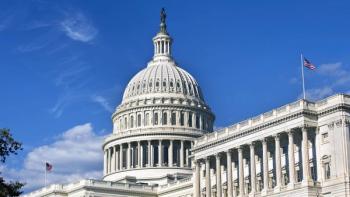
These recommendations will keep key antibiotics for respiratory infections available when they are needed most.

These recommendations will keep key antibiotics for respiratory infections available when they are needed most.

Eisai’s lecanemab-irmb was converted from an accelerated approval to a traditional approval.

The agency is reviewing the medicines after receiving reports of self-injury and suicidal thoughts in patients using the type 2 diabetes treatments.

EMA looks to focus on mRNA vaccines because their classification depends on the target and/or whether they are obtained chemically or biologically.

FDA's approval of Leqembi paves the way for wider coverage of the drug by Medicare and establishes a process for further clinical testing and evaluation of treatments for this widespread, debilitating condition

FDA has approved Roctavian (valoctocogene roxaparvovec-rvox), a gene therapy from BioMarin Pharmaceutical for treating severe hemophilia A in adults.

Problems continue despite actions by regulators to better prevent and address drug shortages.

The debate surrounding drug pricing changes rages on.

FDA approved Pfizer’s once-weekly human growth hormone analog for treatment of growth failure in pediatric patients.

The persistent poverty initiative aims to fight the cumulative effects of persistent poverty on cancer outcomes.

UCB’s rozanolixizumab-noli is approved for treatment of generalized myasthenia gravis in certain adult patient groups.

The agency approved Elevidys to treat pediatric patients four through five years of age with Duchenne muscular dystrophy.

The guidance describes the CDER formal dispute resolution (FDR) procedures for eligible requestors or sponsors that wish to appeal a scientific and/or medical issue related to a final order.

The new guidelines contain formulation recommendations for vaccines launching in autumn 2023.

FDA’s new voluntary pilot program is designed to help clinicians select appropriate cancer treatments for patients.

There is concern that debates will delay the five-year reauthorization of PEPFAR under review by Congress.

The complaint alleges that Medicaid price controls implemented in the Inflation Reduction Act will negatively impact biopharmaceutical innovation.

The document builds on key concepts outlined in ICH E8(R1) General Considerations for Clinical Studies.

Reimbursement for Alzheimer's medicines still will occur only with the completion of studies to support full FDA approval.

Paxlovid is not approved or authorized for use as a pre-exposure or post-exposure prophylaxis for prevention of COVID-19.

FDA has published a new system for providing basic and essential information on patient use of drugs and certain biologic products.

Hope is on the horizon as novel solutions and improvements aimed at benefitting the drug development process with the right framework are coming to the fore.

An increase in applications for gene therapies is putting stress on FDA’s resources.

COVID-19 has raised the specter of pandemic planning and the question of what can be done now to prevent future disaster.

Sandoz’s marketing authorization applications for a proposed biosimilar to denosumab are supported by a comprehensive analytical and clinical data package.